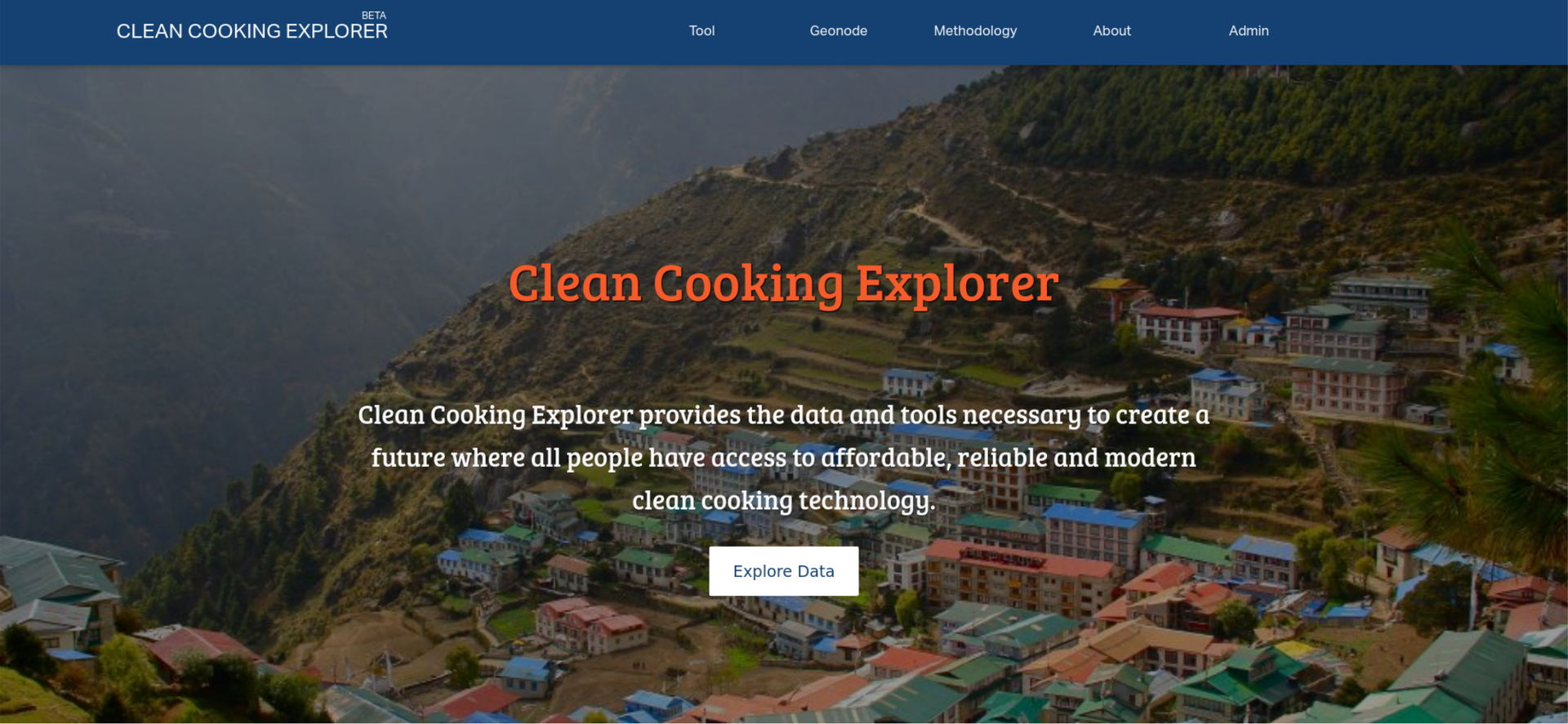CleanCooking.org - Nepal

Kartoza (as Project Technical Lead) in partnership with; Clean Cooking Alliance (Though Leader / Coordinator), World Resources Institute (Technical Advisor), KTH Division of Energy Systems (Technical Partner) and Nepal Open University (Local Partner) on the worked on the Clean Cooking Explorer for Nepal.
Description
Kartoza (as Project Technical Lead) in partnership with; Clean Cooking Alliance (Though Leader / Coordinator), World Resources Institute (Technical Advisor),
KTH Division of Energy Systems (Technical Partner) and Nepal Open University (Local Partner) on the worked on the Clean Cooking Explorer for Nepal.
In Nepal, the residential sector accounted for about 80% of the country's primary energy consumption in 2011/12, with cooking and heating making up a significant portion of this. Cooking alone accounted for around 70% of the annual primary energy supply, largely fueled by solid biomass like wood. While the use of more efficient fuels like LPG has reduced the share of energy used for cooking and heating to about 56% by 2018/19, the majority of households still rely on inefficient cookstoves, contributing to severe household air pollution (HAP). This pollution is linked to numerous health issues, including an estimated 22,841 premature deaths annually. To mitigate this, clean cooking solutions are crucial, and the Government of Nepal (GON) is committed to addressing these issues through various global initiatives and national policies.
Despite efforts to promote improved cookstoves and biogas, progress has been slow, with only 8.9% of households using improved cookstoves and just 2% using biogas. Most households still rely on traditional stoves or open fires. Recognizing the health risks and the need for cleaner cooking solutions, the Clean Cooking Alliance (CCA) initiated a two-year demonstration project focused on promoting biogas and electricity for cooking in peri-urban areas. The project also supported the development of standards for electric stoves in collaboration with the Nepal Bureau of Standards and Meteorology. This initiative aligns with the government’s efforts to reduce reliance on traditional fuels, such as dung cakes, and substitute imported LPG with domestic electricity for cooking.
The study being conducted aims to address the health implications of inefficient cooking practices by promoting cleaner solutions. With the government’s ongoing efforts and the CCA’s involvement, there is a clear need for a strategic, evidence-based approach to build a sustainable clean cookstove and fuel market in Nepal. The study will provide a comprehensive landscape analysis of the cooking sector, evaluate the country’s electricity status in relation to clean cooking, and assess the market potential for clean cooking solutions. This foundation will inform the development of a national strategy to improve cooking practices and reduce health risks associated with traditional cooking methods.
🚩 Note: In the next round of work following this project we decided with the client to consolidate this work with the Energy Access Explorer platform. The web site is thus no longer online. The code remains available at https://github.com/kartoza/clean-cooking-platform. Please see the new platform developed and hosted by WRi for current state of this work.
Completed: 2022-04-30
